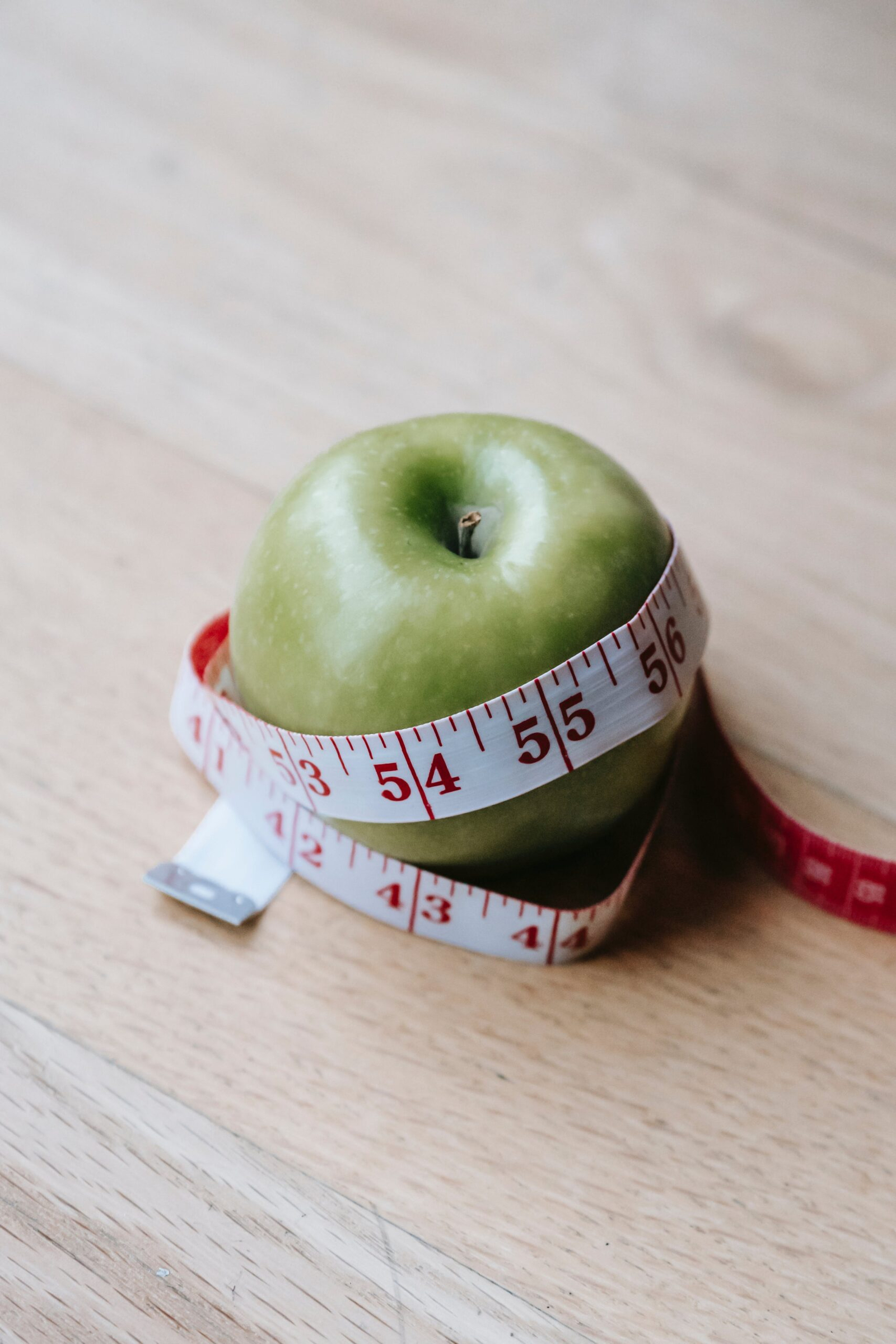Understanding Why You Can’t See Your Weight Loss in the Mirror
Are you finding it hard to see your weight loss results in the mirror, even after sticking to your diet and exercising regularly? The name of the game is patience, as it may take some time before you can appreciate noticeable changes. In the article “Understanding Why You Can’t See Your Weight Loss in the Mirror,” you’ll get a clearer view of this often misunderstood aspect of the weight loss journey, which has left many scratching their heads. The article explores the science behind why you may not instantly see your hard-earned progress and gives practical advice for better evaluating your body’s changes. For anyone determined to lose weight swiftly and healthily, this article will certainly be an eye-opener.

Weight Loss Perception
When it comes to weight loss, perception plays a significant role. It’s a journey that requires not only a physical transformation but also a mental one. You might be losing weight healthily and steadily, yet looking into the mirror sends conflicting messages. Let’s explore this phenomenon deeply.
The Psychological Factor
The mind governs how we perceive ourselves and our bodies. Your mental perception of your body image may not always align with the actual physical changes. For instance, if you have been overweight for a long time, your brain might still project an image of ‘the old you.’ This discrepancy often can lead to self-doubt and ambiguity about your weight loss progress.
Self-Perception and Body Image
Self-perception is a significant component of the weight loss journey. Your body image, which is how you perceive your body’s physical appearance, might not always linearly align with actual physical changes that occur due to weight loss. This misalignment can create a deceptive perception that can often create frustration and demotivation.
Physiological Aspects of Weight Loss
Weight loss isn’t just about shedding pounds; it’s about fat loss while preserving as much muscle mass as possible. Understanding these factors can assist in setting realistic weight loss goals.
Understanding Fat vs Muscle Mass
Many people often mistake weight loss with fat loss. It’s important to understand that they’re different. You see, muscle mass weighs more than fat. Therefore, when you embark on a fitness routine, you may start losing fat while simultaneously gaining muscle, which might not reflect as a drastic weight reduction on the scale.
Rate of Weight Loss
The pace of weight loss varies for everyone and is influenced by factors like age, metabolism, diet, and genetics. Just because someone else loses weight faster doesn’t mean you aren’t making progress. Remember, healthy weight loss is a gradual process, so don’t let the pace deter you.
Differences in Body Composition
Each individual’s body is composed differently, affecting how weight loss is perceived. Two people might lose the same amount of weight, but it could look different due to varying fat and muscle composition. Just because your weight loss isn’t visually conspicuous doesn’t mean you aren’t making progress.

The Truth About Quick Weight Loss
While quick weight loss might seem enticing, it’s crucial to understand its implications and the often-unspoken realities.
Reality of ‘Lose Weight in a Week’ Promises
There is no shortage of diets or programs promising you’ll lose weight in a week. However, oftentimes, these techniques lead to loss of water weight or muscle mass rather than sustainable fat loss. They might seem like a quick fix, but in the long run, they offer no substantial, healthy weight loss.
Sustainability and Health Effects of Rapid Weight Loss
Quick weight loss often involves drastic diets or routines that are not sustainable long term. They might lead to malnutrition, or increase the risk of yo-yo dieting, which is known to raise health complications. Sustainable weight loss, which gradually implements lifestyle changes, is much healthier and effective.
The Role of the Mirror in Self-perception
The mirror plays a significant factor in shaping how we perceive our weight loss. But the reflection you see might not always give an accurate impression.
How Our Brain Processes Our Reflection
Our brain doesn’t just show us a mirror reflection; it interprets the image based on past and present experiences, beliefs, and emotions. As a result, you might not perceive changes due to weight loss immediately, as your mind might still cling to the ‘old you’ reflection.
The Mirror Paradox in Weight Perception
Despite losing weight, sometimes the mirror doesn’t seem to reflect any notable changes. This is known as the mirror paradox in weight perception. Small, gradual changes accumulated over time might not be readily noticeable, leading to a perception that you haven’t lost any weight.

The Size Perception Phenomenon
When it comes to weight loss, sometimes it’s about the mind more than the mirror. Let’s explore the ‘paper towel’ theory, which helps explain the psychology behind size perception during weight loss.
Understanding the Paper Towel Theory
The paper towel theory is a conceptual analogy for weight loss. Imagine your body as a roll of paper towels, each towel representing a unit of weight. Initially, removing several towels (losing weight) doesn’t seem to make a visible difference. But as you get closer to the core of the roll, each towel taken off becomes more noticeable. Similarly, initially in your weight loss journey, changes might not be visually conspicuous, but as you lose more weight, every pound shed becomes more noticeable.
The Illusiveness of Small Changes
Typically, weight loss progresses gradually, with small changes over time. These small changes are often hard to notice, creating an illusion you’re not making progress. This is why consistent documentation of your journey, like periodic photographs or measuring body dimensions, can be helpful to visualize these small, incremental changes.
Influence of Body Dysmorphia on Perception
Body Dysmorphia is a psychological disorder influencing weight loss perception. It causes individuals to obsess over perceived flaws in their appearance.
What is Body Dysmorphia?
Body Dysmorphia Disorder (BDD) is a mental health disorder where you can’t stop thinking about one or more perceived defects or flaws in your appearance. The flaw may be minor or imagined, but the individual may spend hours a day worrying over it, triggering distress and impairing their daily life.
How Body Dysmorphia Affects Self-perception After Weight Loss
People with BDD often struggle significantly with weight loss perception. Despite losing weight and improving their health, they might still perceive themselves as overweight or flawed, causing a considerable mental health burden.

Weight Loss and Body Proportions
Weight loss isn’t uniformly distributed across the body. The resulting proportions can sometimes hide weight loss.
The Impact of Genetically Determined Fat Distribution
Everyone’s body stores fat a bit differently, determined primarily by genetics. Some people might store more fat in the abdominal area, others around the hip. Weight loss follows the reverse order, colloquially known as the ‘first in, last out’ rule. This can dictate how weight loss visually manifests.
How Body Proportions can Hide Weight Loss
Even after losing weight, certain stubborn areas might still retain fat, causing an illusion that the weight loss hasn’t been significant. It’s crucial to remember that this is a natural process and patience is key.
The Effect of Loose Skin on Weight Loss Visibility
Rapid or significant weight loss can result in loose skin, which might influence the visual perception of weight loss.
Why Weight Loss can Result in Loose Skin
When you gain weight, your skin stretches to accommodate the increasing fat. Upon losing fat rapidly or significantly, the skin often lacks the elasticity to snap back to its original size, leading to loose skin.
How Loose Skin Influences Your Mirror Reflection
Loose skin might cover your body contours and mask the weight loss. While it might be frustrating, remember that this doesn’t negate your hard-earned progress. There are viable medical and non-medical solutions to manage loose skin.

Role of Clothing in Visualizing Weight Loss
Clothing, being the immediate cover to your body, can significantly affect how weight loss is perceived.
How Clothing can Misrepresent Body Changes
Clothing too loose or too tight can oftentimes misrepresent the changes your body has gone through. Oversized clothing might hide the weight loss, while tight clothing can cause uncomfortable bulges, giving an illusion of no weight loss.
Importance of Properly Fitting Clothes in Weight Loss Perception
Regularly updating your wardrobe to properly fitting clothes as you lose weight is vital in perceiving weight loss. They can better represent your current body shape and make you aware of the physiognomic transformations resulting from your weight loss.
Mitigating the Perception Challenge of Weight Loss
Tackling the perception challenge of weight loss requires a balanced approach, involving not just physical, but mental well-being as well.
Reliable Methods to Monitor Your Progress
Tracking your progress is critical to staying motivated. This includes not just tracking weight, but also other metrics like body measurements, body fat percentage, and how your clothes fit. Regularly clicking full-body photographs can also assist in documenting visual changes over time.
Regulating Expectations and a Healthy Mindset Towards Weight Loss
Weight loss is a journey with ups and downs. Having high expectations of quick results often leads to disappointment. It’s crucial to adopt a healthy mindset, realizing that it’s a gradual process requiring consistency and patience. Celebrate every small victory and remember, you are transforming, even if you can’t perceive it immediately.

